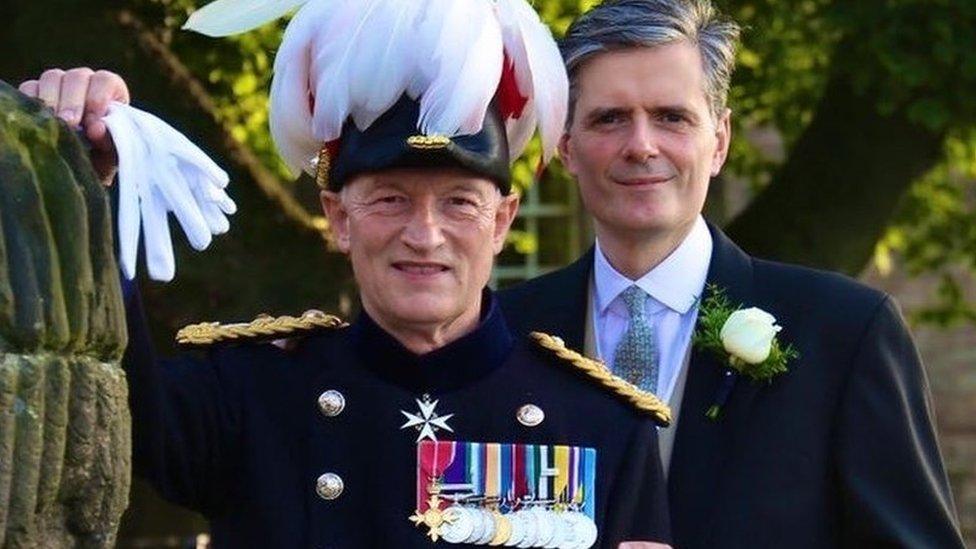Same-sex Church in Wales marriage hope within five years
- Published
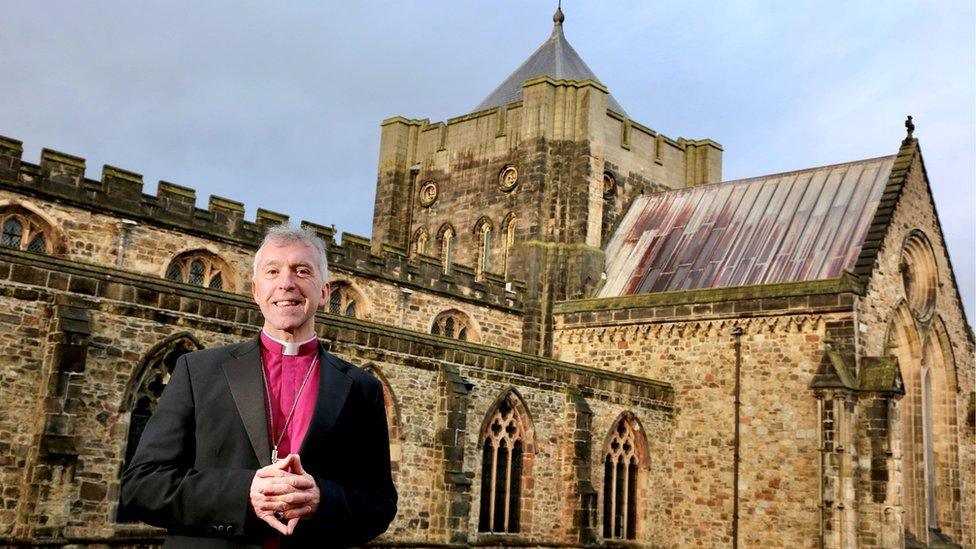
Andrew John was enthroned as the Archbishop of Wales on Saturday
Same-sex weddings could be held in churches in Wales in five years, the new archbishop has said.
The Most Rev Andrew John has said the church should be inclusive and "welcome people, where they are, who they are".
Last year, the Church in Wales passed legislation meaning couples could have their civil partnership blessed.
It was carried by a two-thirds majority, to be used experimentally for five years, but individual clergy will decide whether to bless partnerships.
The new archbishop said he was "enormously heartened by that vote".
"Although it wasn't unanimous - it showed the Church in Wales has a common mind on this," he said.
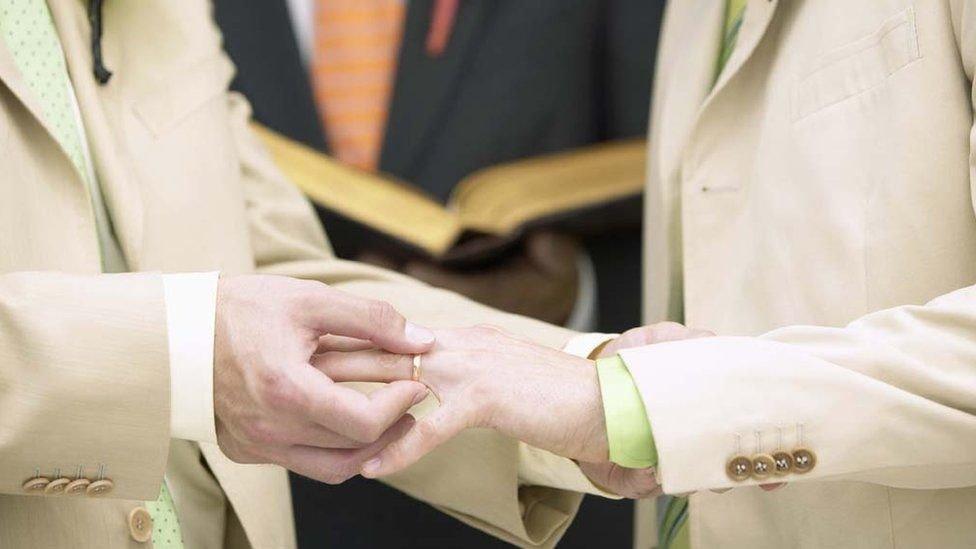
The Most Rev Andrew John believes same-sex weddings could be allowed by the Church in Wales in five years' time
"I wouldn't be surprised if, within that five-year period, we were once again talking about the marriage of same-sex couples," he added.
Before that could take place, Andrew John said further discussion would be needed: "We need to make the journey and we then need to have the debate… and when we do that I think we'll find ourselves looking back and thinking perhaps the concern or the trouble, real and sincere as it was, wasn't a real problem."
Same-sex marriages are not currently allowed by the Church of England or the Church of Scotland.
However, the Scottish Episcopal Church voted to allow gay couples to marry in church in 2017, making it the first major Christian church in the UK to allow same-sex marriages.
The former Bishop of Bangor was elected as Archbishop of Wales in December.
On Saturday, he was enthroned during a national service at St Deiniol's cathedral in the city.
A radical archbishop but not a politician
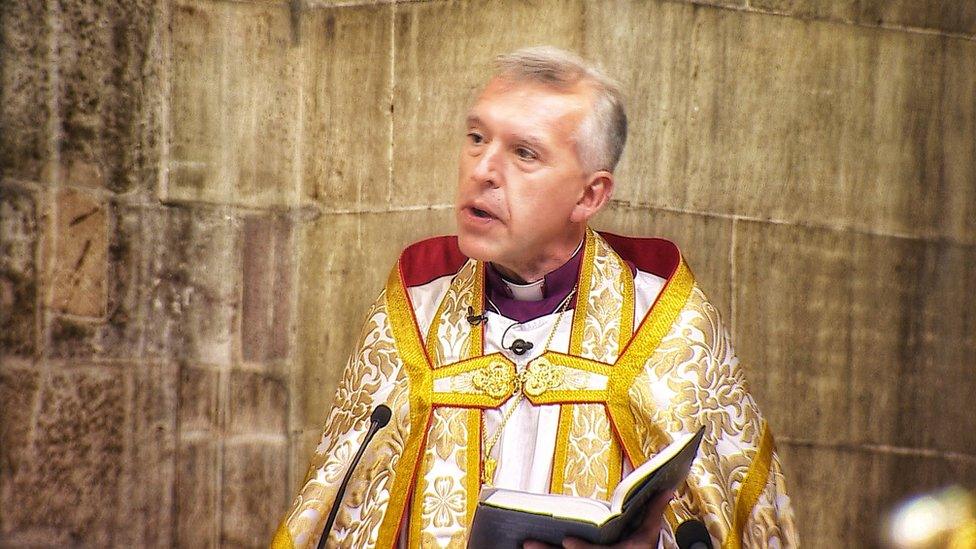
The archbishop did not hold back on controversial issues while delivering his first sermon
The new archbishop said he would not sit back in his role and he'd be "radical" but not a politician.
During his first sermon as archbishop, he touched on the plight of those in Ukraine, and his disbelief that the Russian Orthodox Church was supporting the attacks by Vladimir Putin.
The Church in Wales has already voted to distance itself from all Christian Churches supporting the aggression against Ukraine.
"The bloodshed in Ukraine with which we are now so familiar on our screens, sanctioned alarmingly by part of the church," he reflected.
"It has reminded us that it is less easy to keep the peace than to start a war."
He has also said Archbishop of Canterbury Justin Welby was "spot on" to criticise the UK government's policy to send asylum seekers to Rwanda.
"I think outsourcing a moral as well as a legal problem was unacceptable," he added,
"We need to have a solution which is much closer to home and, in truth, the reason why this is happening is because we seem incapable in working with our French colleagues in finding solutions at home.
"We ought to redouble our efforts to do that and not send people abroad. That seems outrageous."
An apology to abuse survivors
The new head of the Church in Wales said it also had to listen to its own message, adding that the Church had made mistakes in the past on issues such as safeguarding children.
"We don't have an unblemished record when it comes to the use and misuse of power," he said.
"We've let people down. Survivors of abuse, for example.
"We failed to admit our shortcomings, preferring at times to protect our reputation about the individual's damage, by our neglect.
"We do owe an apology to those we have failed and we make that apology unreservedly."
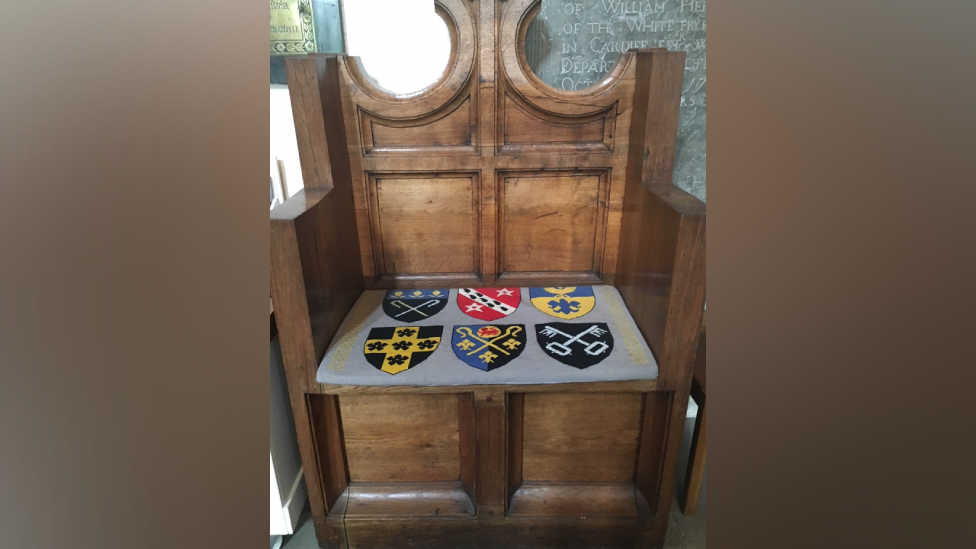
As he took the archiepiscopal throne, the new archbishop made an apology on behalf of the Church for its failings to protect abuse survivors
But he also warned that it was not only the Church that had to heed the message.
"It's not only the Church that needs to learn the language of apology, however," he added.
"Our national life, political and cultural, needs to be shaped in a way that inspires confidence.
"So that when mistakes are made, when deliberate wrongs are done, we acknowledge truthfully our own part."
Andrew John said he would continue to speak on similar issues he believed were important, adding that the "Christian faith invites us to engage with all of life. When I have something to say about anything - for good or for ill - I think it's important the Church in Wales can speak to the public.
"So I intend to be radical but at the same time it's not my role to be a politician.
"I'm a Christian and an archbishop.
"My purpose is to make sure when there are things in which the Christian faith has an impact - that we have the opportunity to say that - courteously but directly."
- Published6 September 2021
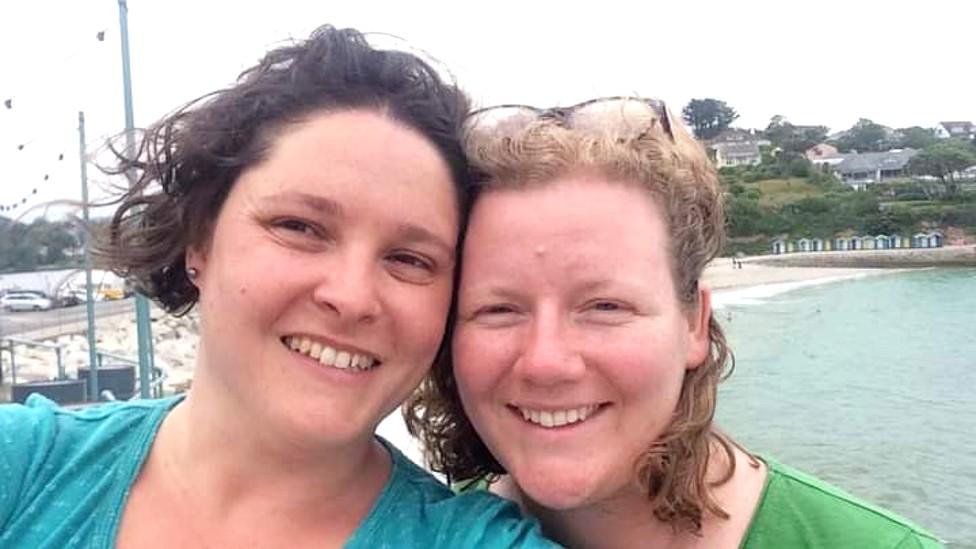
- Published5 August 2021
